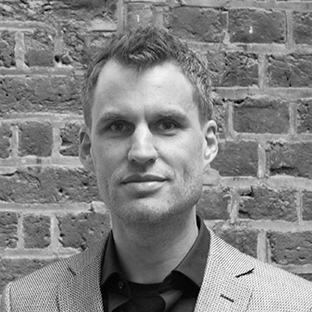Campaigns to get us more fit and healthy are the norm these days - it can feel like there is barely a month without one. Did you make it to the end of Stoptober without a cigarette? Or manage to Go Sober for October?

Time to start with a confession: I often get home tired from the day and wired from steady doses of caffeine, and I’ll pour a glass of wine while I fix food. I convince myself the wine helps me relax and switch off a bit - and it can be all too easy to sip my way through a bottle by the end of the evening. I am also surrounded by subliminal triggers: a wine rack, wine glasses on the shelf, a bottle in the kitchen. These are all cues that help trigger a particular behaviour – in this case opening the bottle – and the reward (drink) that follows. This sequence is well articulated by Charles Duhigg in his book The Power of Habit.
To understand why I behave as I do is to understand the complex links and webs that bind my actions together. Too much caffeine, not exercising, not getting enough sleep, getting home late, feeling stressed; these are all interlinked. What I'm describing, really, is a complex, dynamic system of inter-related parts: my life.
Making change happen
At the RSA we think and talk a lot about how to make change in complex, dynamic social systems - not just health and wellbeing, but others such as work and unemployment, education, housing and criminal justice. We try to understand these issues by looking through three lenses that provide perspectives on the incentives and power dynamics that influence our behaviour and illustrate, ultimately, the complexity of making change happen. Why is this relevant for behaviour change? Well, change is change, a shift from one state to another. It's too easy to look at an individual and say 'just do it'. Seeing our lives as complex and interlinked allows us to identify and then unpick the full range of ties that bind us in our current habits and behaviour.
The first lens is about individualism, as I’ve described above with my own web of triggers and habits. The second lens looks at the solidaristic power of community, recognising that our behaviour doesn’t exist in a social vacuum. We like to conform to social norms, those informal rules of society that help us fit in, knowing that what we are doing and how we are behaving is in common with others like us. And we've seen social norms shift over time, too; driving home drunk from the pub, wearing a seatbelt, smoking indoors. Alcohol, perhaps more than any public health issue, is part of the fabric of day-to-day life for most people: we often meet, eat, commiserate and date with a drink in hand.
Social networks are also important determinants of our solidaristic behaviour. It's been shown that people's behaviours have influence up to three degrees of separation. In other words, if my best friend's wife's brother stops smoking, that will ripple across the network. Suppose everyone in my network has 15 close friends and family. That’s over 3300 people in my network, most of whom I won’t know, all of whom are subtly influencing me in ways I’m not aware of.
The third lens looks at the hierarchical power within a society and who hold it; those with expertise, legitimacy and charged with the responsibility to help effect change. This rests in our bureaucracies and institutions such as public health, local government, the NHS, industry, employers. These organisations need to not only work together to effectively support change but also actively engage people in their work. Crucially, this needs to include a recognition of the complexity of the challenge. It is all too easy to see behaviour as a result of a binary choice - to smoke or not; to exercise or not – which can lead to a criticism of ‘bad decisions’ as though they are made as a conscious, deliberate choice. Yet we know it's not as simple as this.
Collective impact
When I worked in local government I commissioned services in a deprived community to support people to change their health habits for the better. It was in part successful, because the programme, devised and delivered by an organisation called Do Something Different, helped people to unpick their own habits by disrupting those learned and automatic responses that we all have: get home late, open a bottle of wine. The programmes achieved this by focusing on individual behaviour and literally encouraging people to do something differently by giving them small tasks and ideas for actions. The goal was to encourage people to expand their behavioural flexibility: rather than using the same behavioural response to every situation, developing the ability to flex your response. Or, in my language, getting comfortable being uncomfortable.
Applying the RSA’s insight that we are more likely to have a successful policy intervention if it address all three perspectives - the individual, the solidaristic and the hierarchical - leads me to wonder what more this initiative could have done. We'd focused on the individual. Suppose we'd also tried ways of shifting social norms around alcohol in the community, encouraged people to come together in their community for solidaristic support, to start a movement for change. Suppose too that we were able to leverage hierarchical power in the area through an engaged coalition of partners for change from across the statutory sectors… what collective impact might we have had?
The Mayor of Oklahoma, Mayor Cornett, stood up publicly in 2011 and said “As someone who has addressed weight-loss issues my entire life, I know how difficult it can be. But we can do it. We need to pull together as a community to lose weight, exercise more often, and eat nutritiously. Obesity is an epidemic in Oklahoma, and the problem is only getting worse. It’s time to end our sedentary, fast food lifestyle.” He created personal legitimacy within his hierarchical position as Mayor, appealed to the community for support and encouraged individual action. And it worked. The city collectively has lost more than 1 million pounds.
Why Complexity?
Knowing does not equal doing. Even if we receive and inwardly digest the public health messaging around alcohol, it does not automatically follow that we act on that information. For many of us, no amount of information will lead to new behaviours. But we can disrupt habits by interrupting or changing their behavioural triggers. Further, the evidence from my work with Do Something Different is that once you begin to untangle this web of linked behaviours, all sorts of magic happens across all elements of your life. This magic happens because everything is linked: whether we smoke, work or exercise; who we socialise with, whether we volunteer in our community, what we eat, how we spend our spare time… this is our life and it’s often messy, always interlinked. Unpick one set of links and it impacts on all the others.
We're in this together
We need to find ways in which we can create a space where individuals, communities and those from institutions can come together to design solutions. Solutions that recognise the complexity that exists, help people understand their individual behaviour web, take account of social norms and networks and leverage the strengths of different organsiations within wider systems.
As a result of our programme to improve health in a disadvantaged community we saw residents getting back into work and education. This wasn’t something we had originally aimed to achieve, but this is what it looks like when the magic happens: interventions that help us make positive changes in our lives, play out across different aspects of our lives. Ultimately, the public sector needs to be agnostic about where the values and potential savings from this work accrue; in turn this requires more innovative and flexible partnership and commissioning arrangements.
Stoptober isn't just for October
We all know that course the point about stopping smoking - the original aim of the NHS movement Stoptober - isn’t to stop for a month. Nor is the aim of the Macmillan campaign to go sober for the rest of your life. So reaching November is great, but it's not the point. The point is to create a moment in time in which to kick-start the move from smoking to not smoking, to drinking without thought to consciously moderating your intake: from your current reality to a new one. It's an opportunity to rethink how we can make the changes needed to sustain healthy behaviours. One of the great challenges facing us as a society, as individuals and as those charged with helping improve the population's health is just this - how do we make changes that lead to a healthier life? And, maybe, seeing ourselves at the heart of our own complex, dynamic systems will help us identify our own triggers and influences that lead us to act in the way that we do. Only then might we stand a reasoned chance of making change stick.
Ian Burbidge is Associate Director at the RSA within the Public Services and Communities Team. Follow him @ianburbidge

Join the discussion
Comments
Please login to post a comment or reply
Don't have an account? Click here to register.
Fantastic Ian! As a Doctor who starts his day with too much caffeine, spaces out the day with too many chocolate treats and ends it with too many glasses of red wine - I need to find a new reality and Do Something different. I really like your challenge: